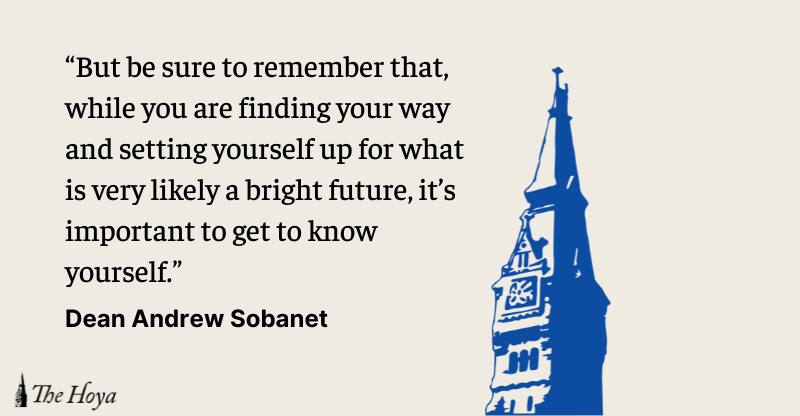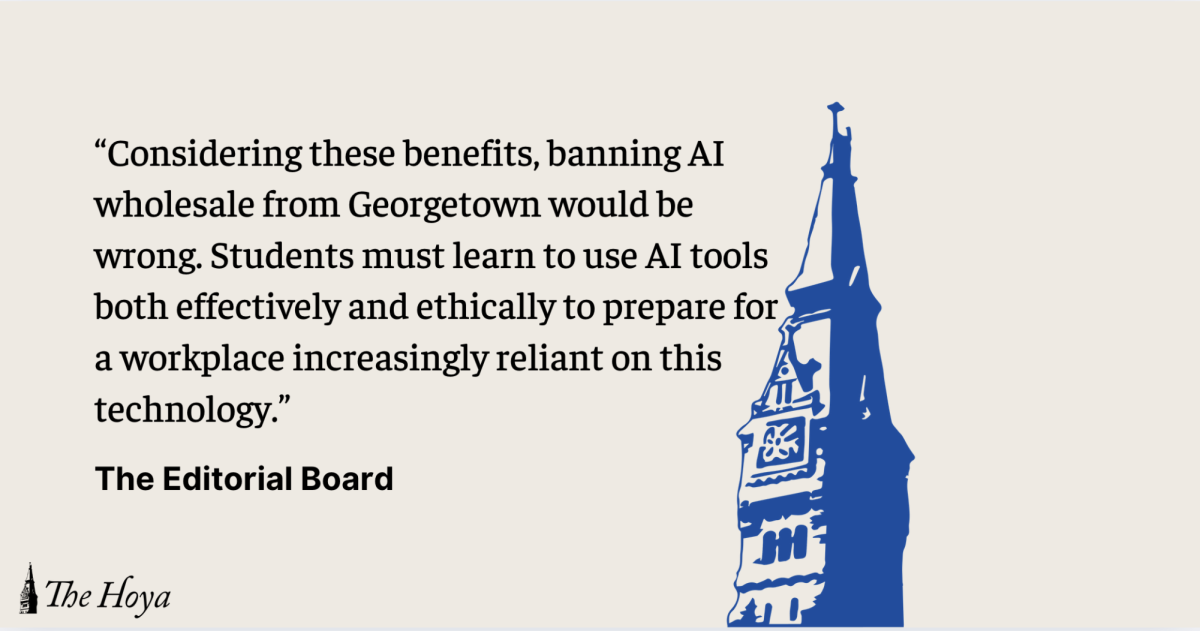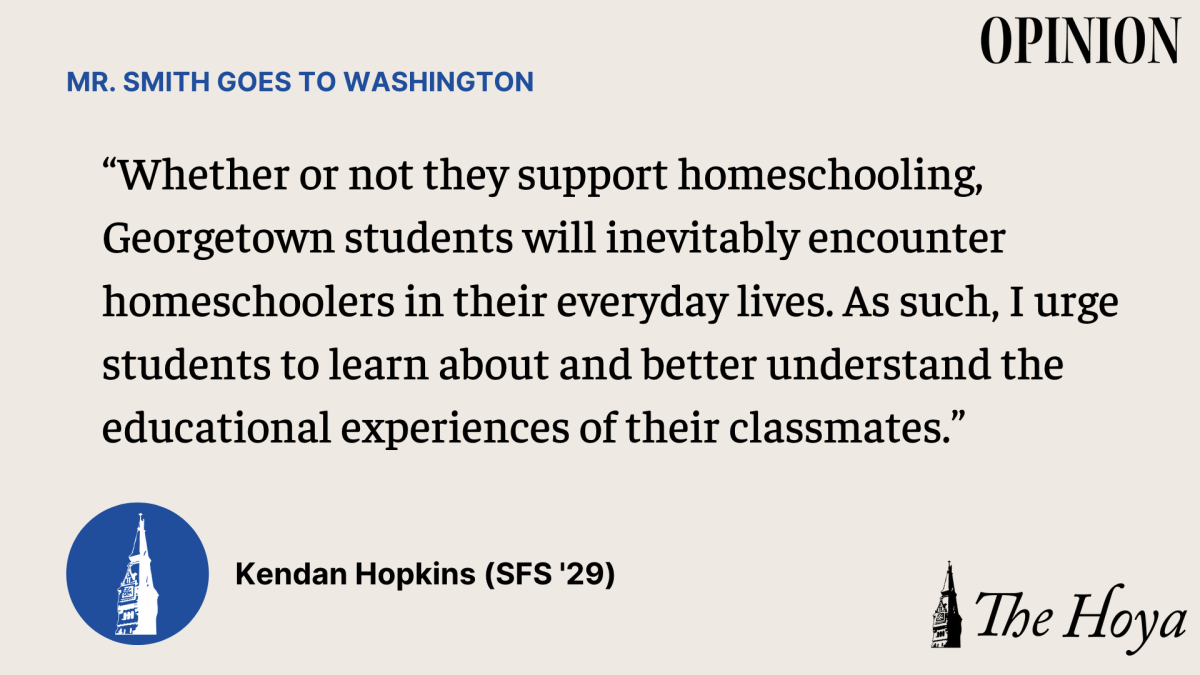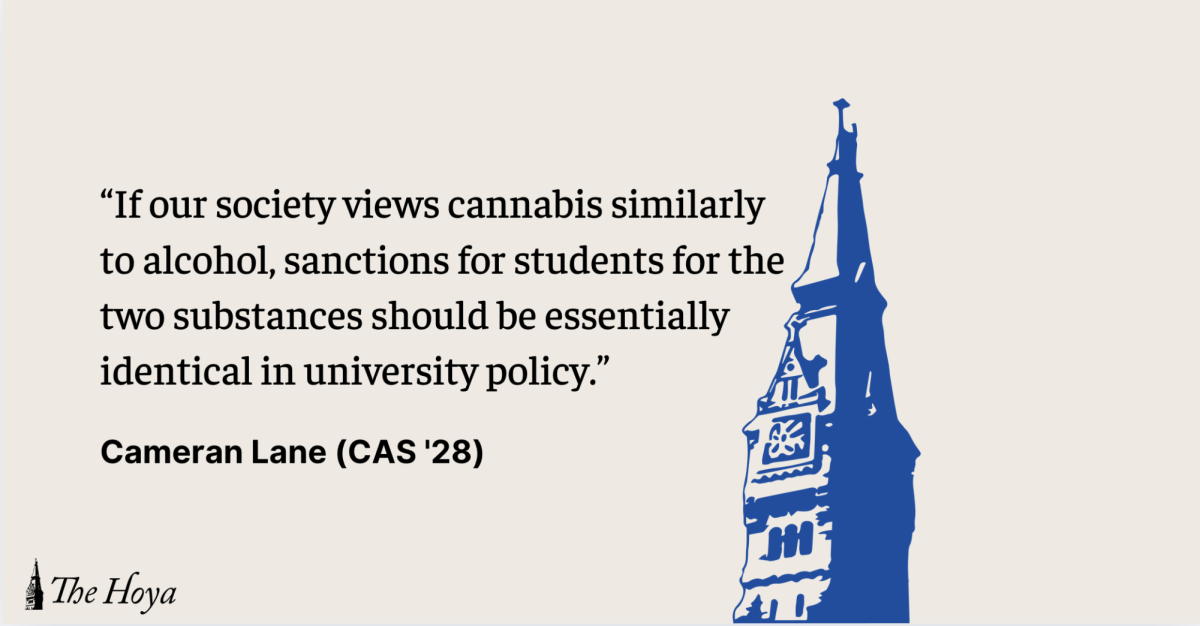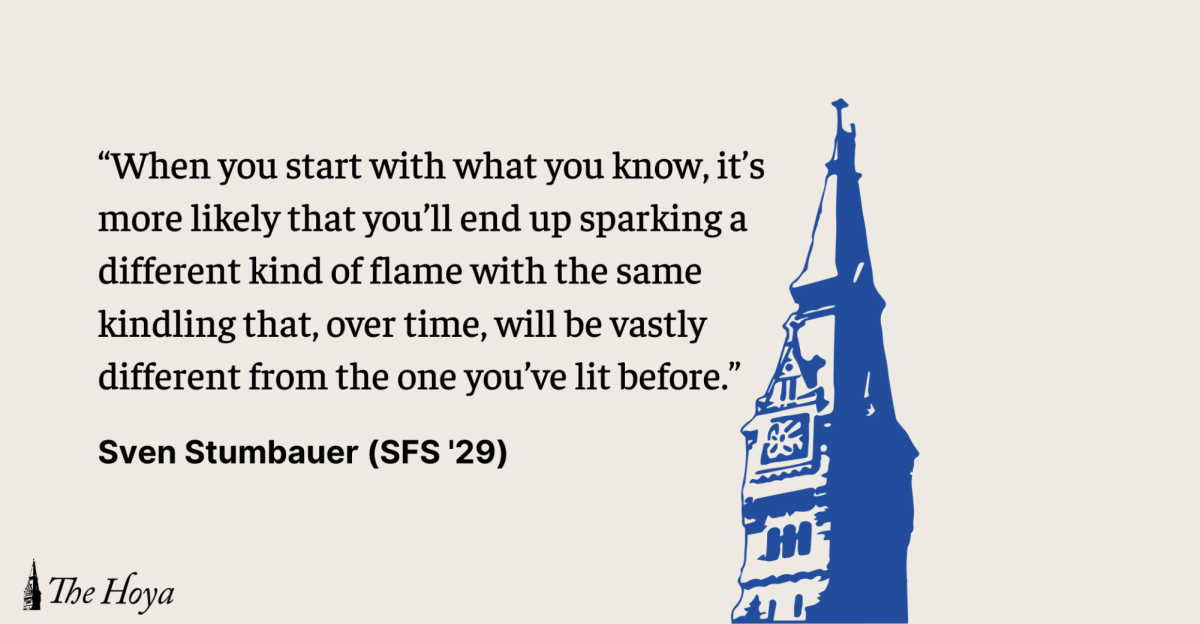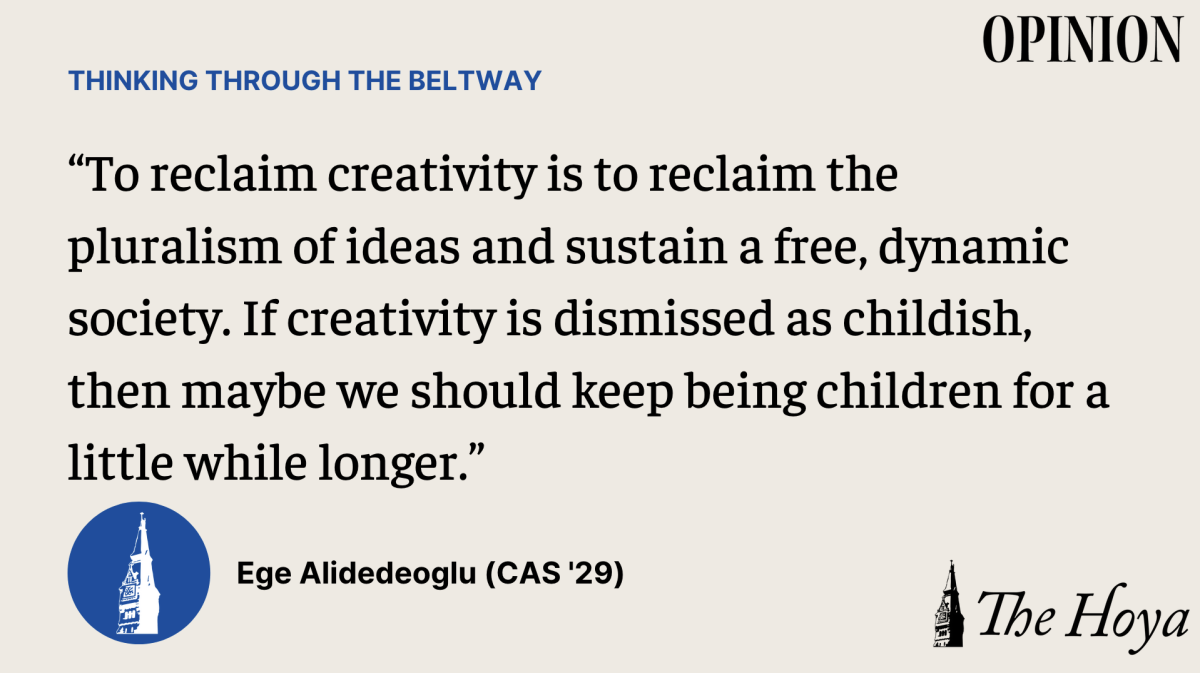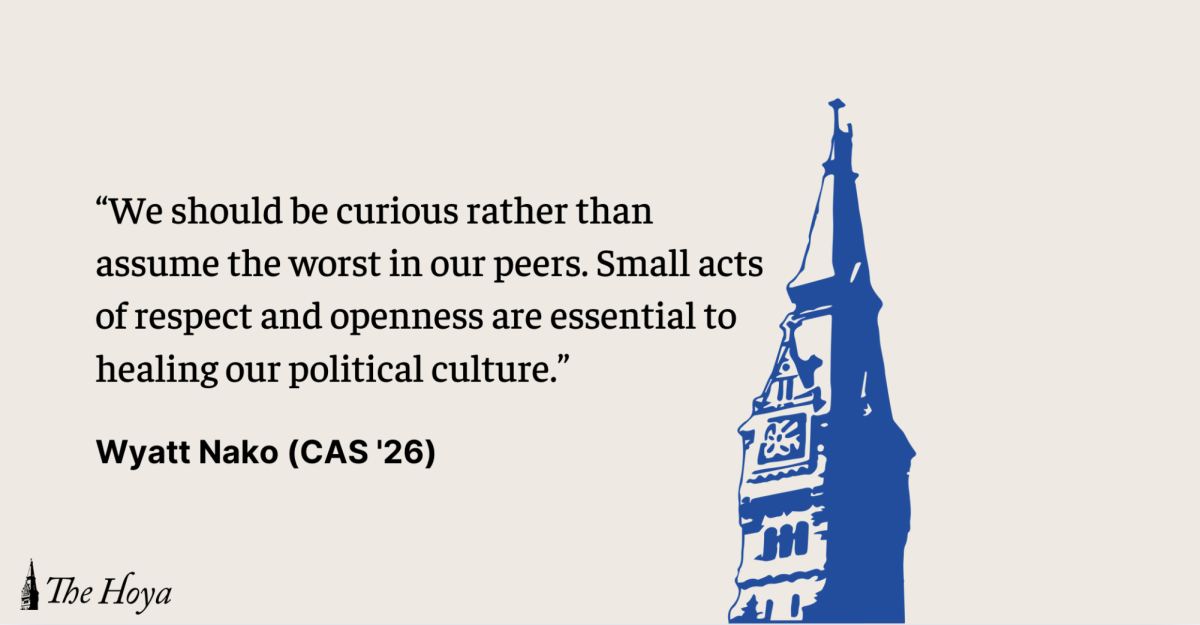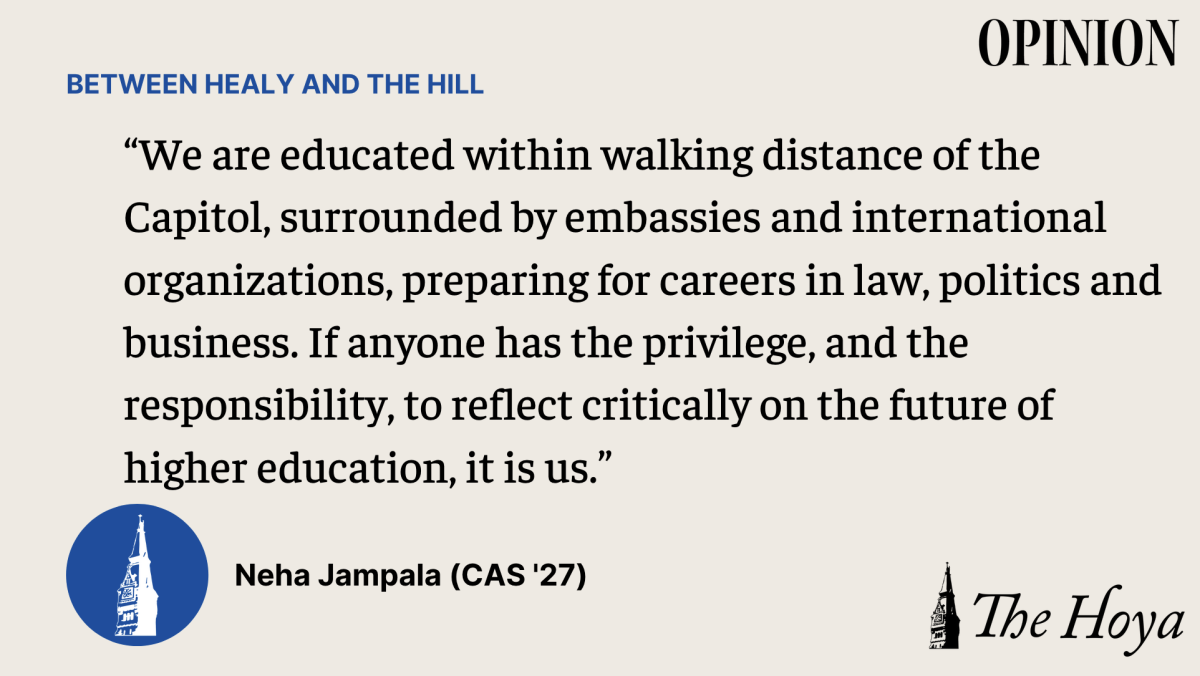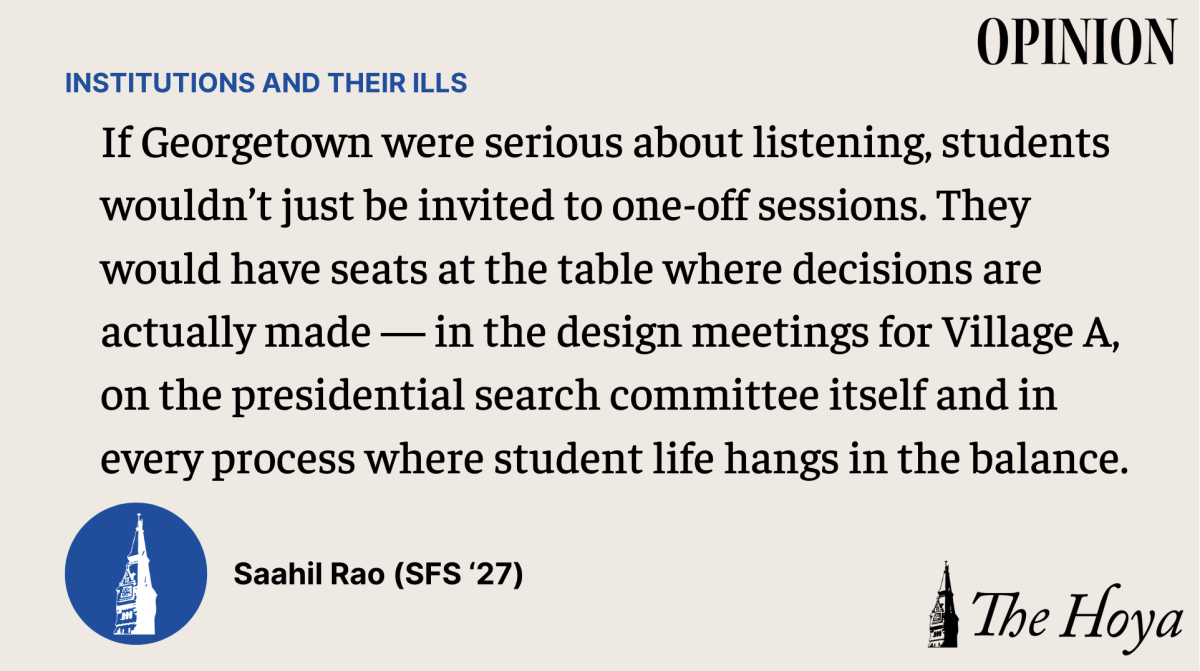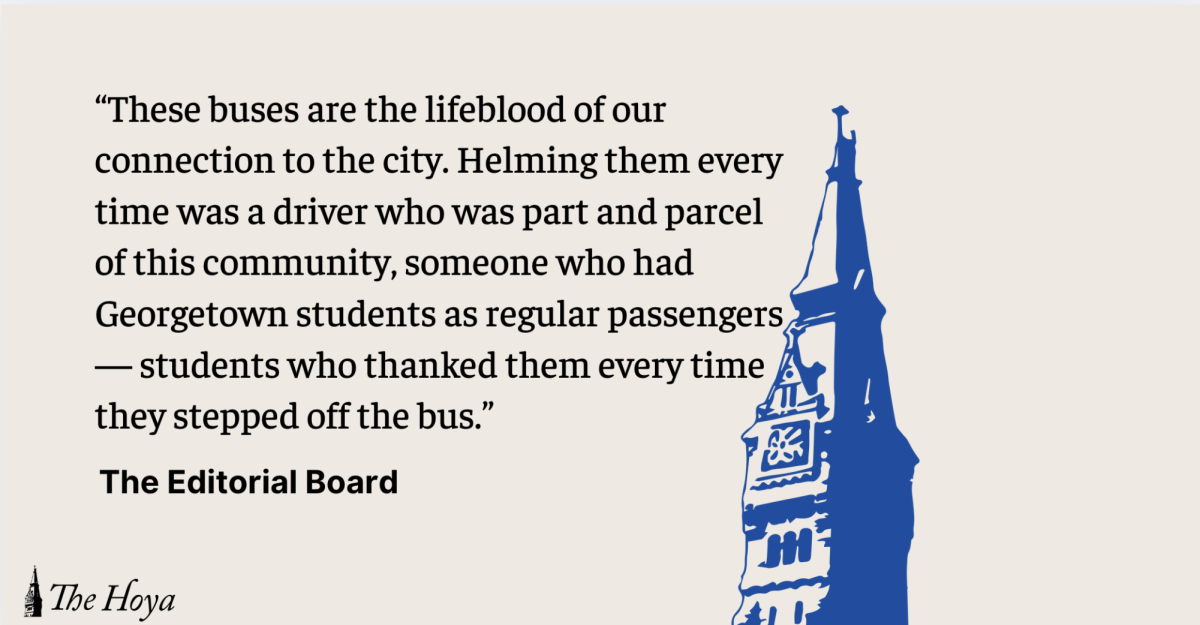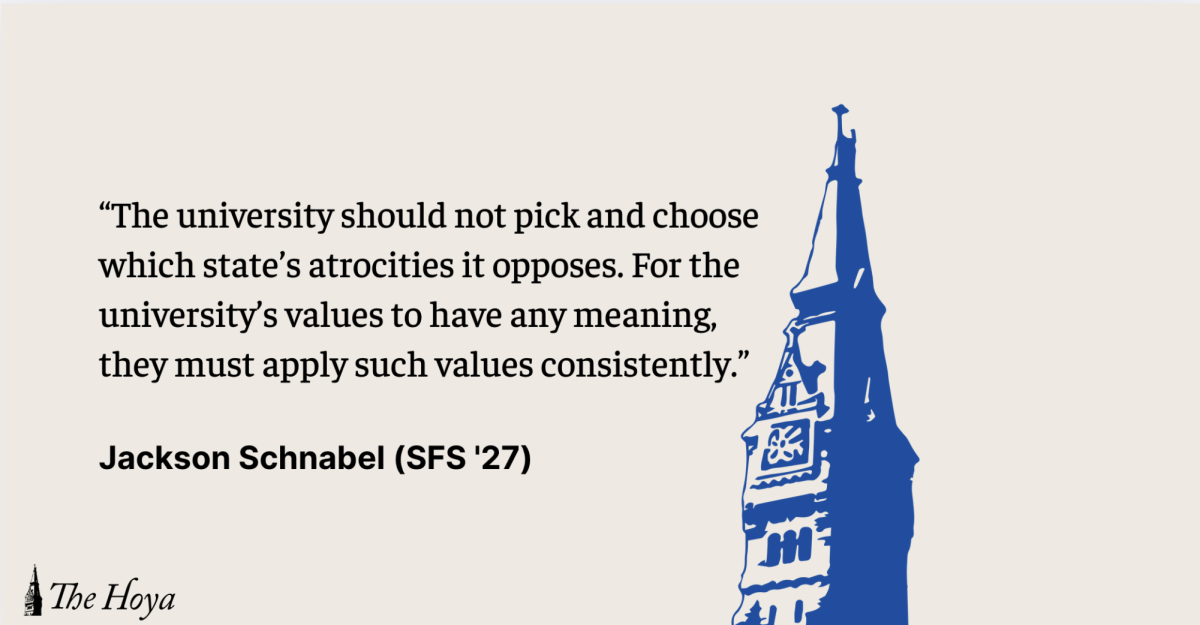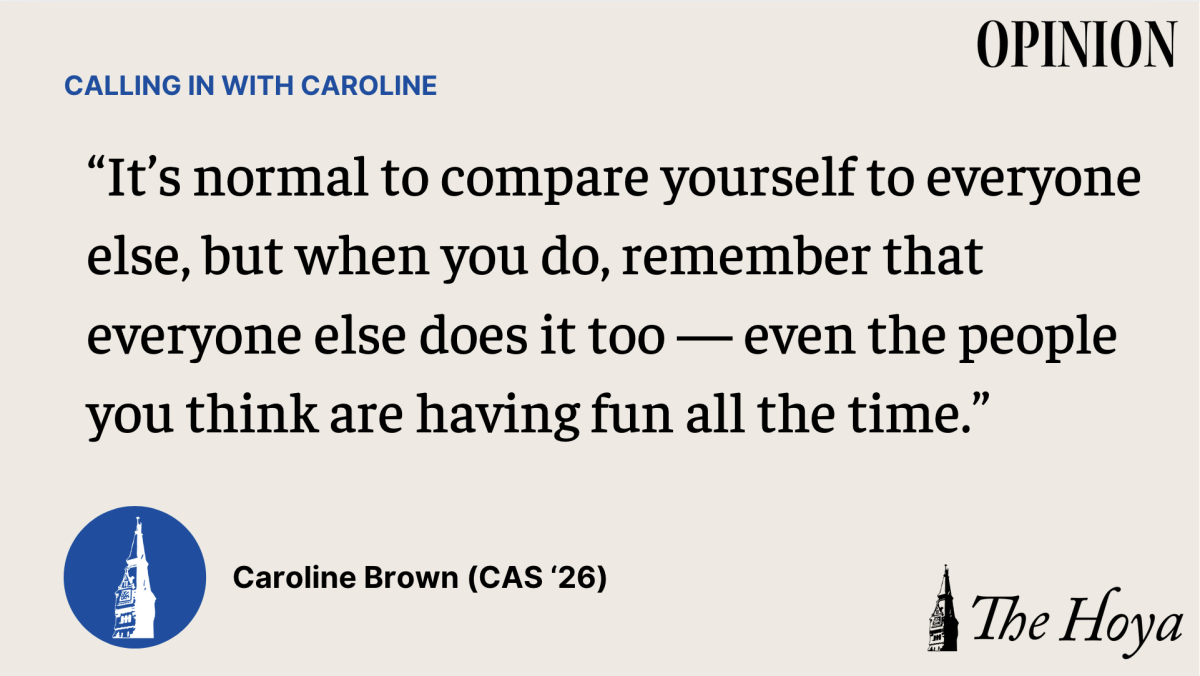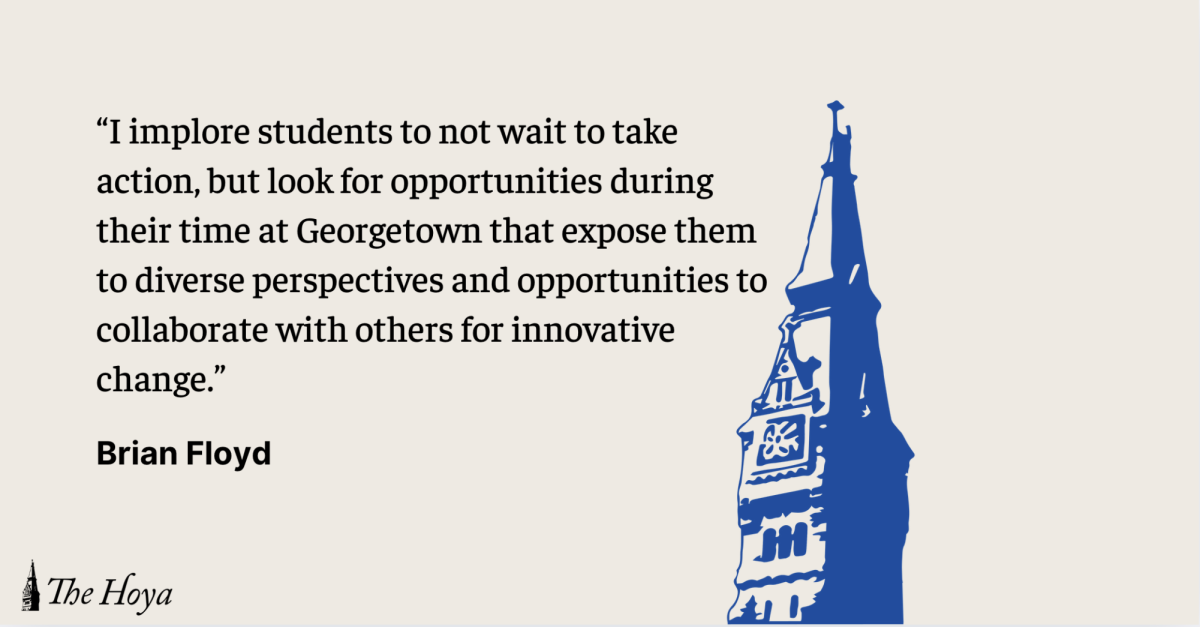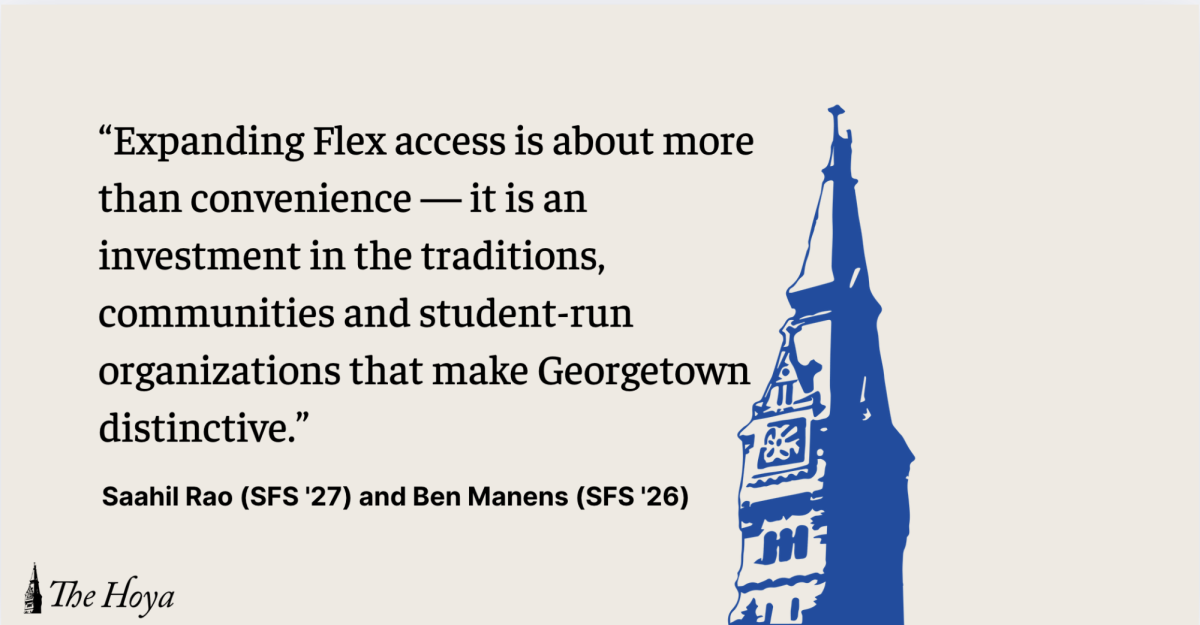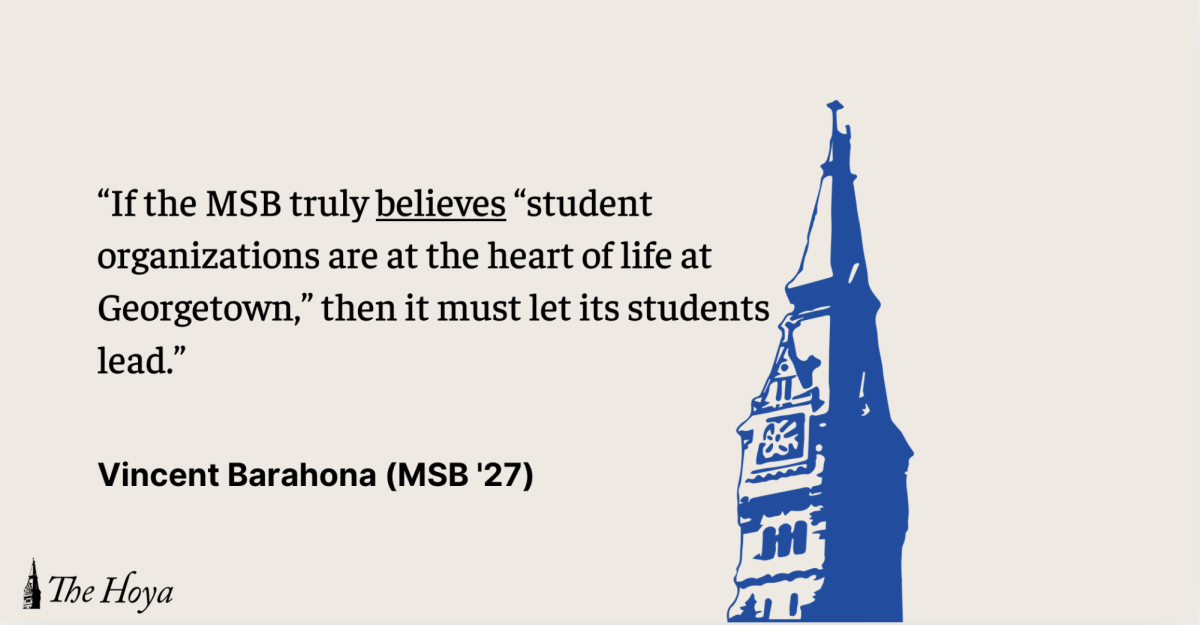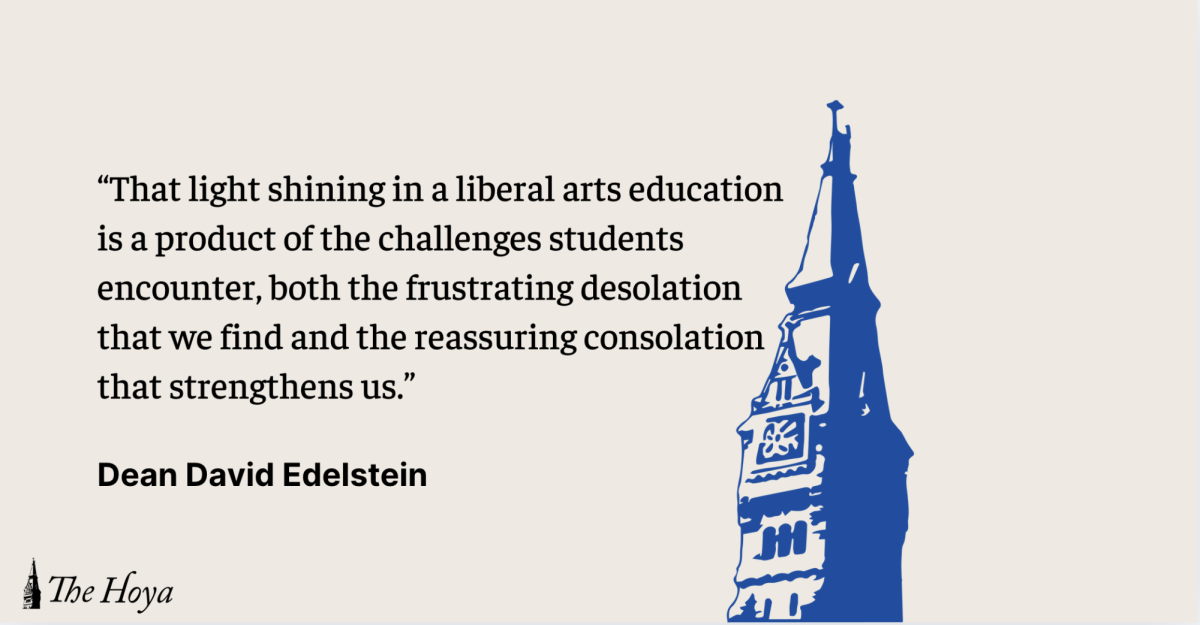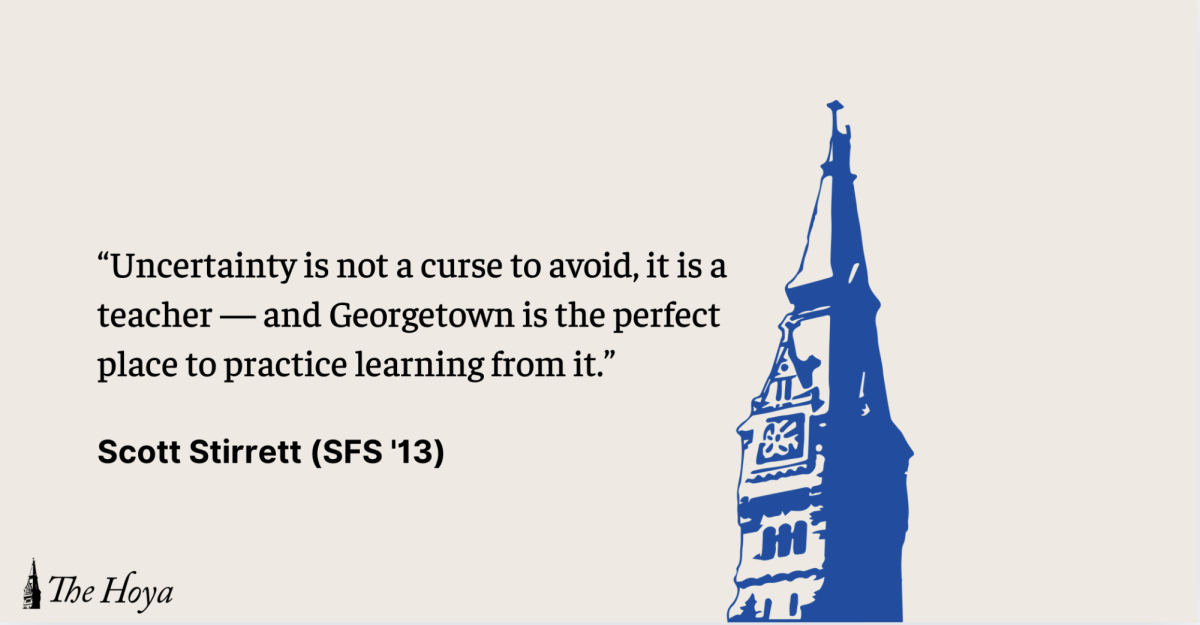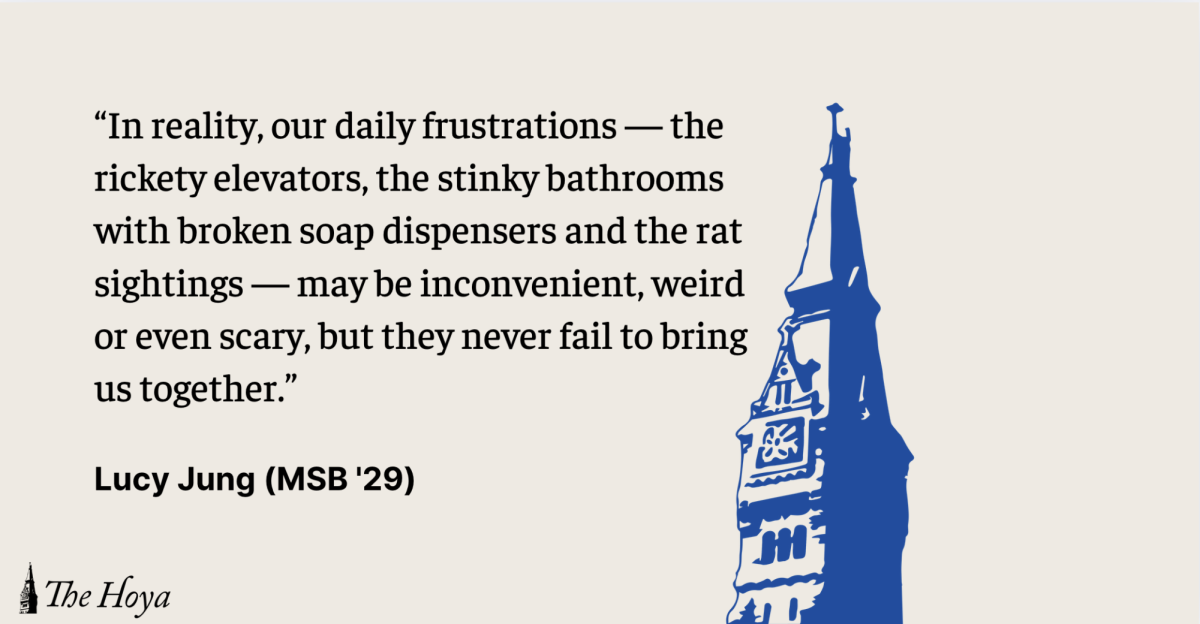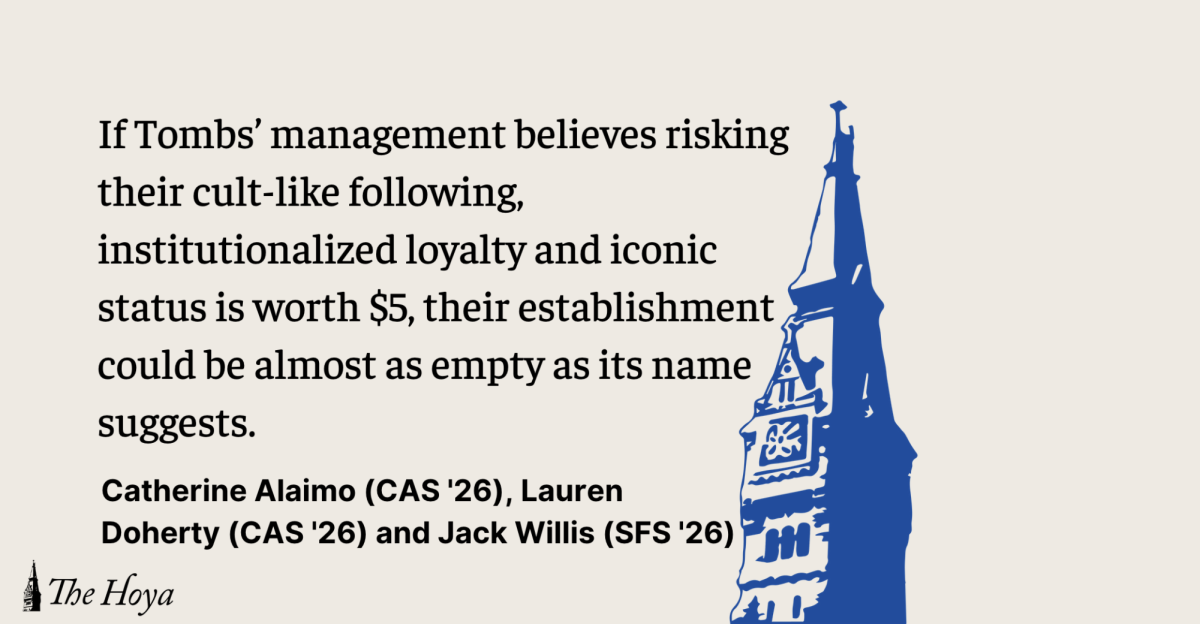As the hustle and bustle of move-in, New Student Orientation and the first day of classes gives way to the rhythm and routine of the fall semester, many students and faculty members, myself included, find themselves asking: “Where does the time go?”
This semester marks the beginning of my 23rd year on the Hilltop. I hope — with more than two decades spent working, learning and growing alongside extraordinary faculty, brilliant students and dedicated and industrious staff — that I have learned some kernels of wisdom that will help you make the most of your time here at Georgetown.
Your time here will go quickly. You’ve already learned this from your experience in high school, and it will happen again, only faster this time around. I’m not going to stand on my desk to emphasize this, as I’m sure you get the point.
My first piece of advice would be to slow down and take a step back and appreciate where you are, how you got here and the people who may have helped you get here. Georgetown has a special place in the world. It’s one of the reasons so many of us have chosen to be at this university. If you’re not already familiar with our mission statement, I suggest you give it a read, as it’s a good introduction to Jesuit values. One of the things that is most appealing about this centuries-old set of precepts, which are the bedrock of this institution, is that they are universal. One need not be a practicing Catholic to find them compelling: Interreligious understanding is one of these values. I’m always moved when we have a diverse set of faith leaders speaking at university events like Convocation and Commencement. It’s the best possible message to send to a broken world that needs us as a model: We are committed to pluralism.
The core values of the university can serve as something of a road map as you find your path forward as a Georgetown student (and later on in life). You will have many competing demands on your time while you are here. There will be pressure to pack your schedule, to pick up another major or minor, to get into a club, to set up a summer internship, to keep up with the resume of the future prime minister who lives down the hall. Those pressures are real and it’s important to acknowledge them.
But be sure to remember that, while you are finding your way and setting yourself up for what is very likely a bright future, it’s important to get to know yourself. Yes, you should think about professional preparation, but the best way to do that would be to find your passion. You will spend the bulk of your life in the profession that you choose. Make sure that path is one that excites you, that can give you meaning and a lasting sense of fulfillment and that can make the world a better place.
One of the few downsides of being a dean is that I don’t get to teach this year. Teaching is energizing and inspiring for me, so if you’ll indulge me, I’ll share some lessons that I would have shared in the classroom this year. Lately, I’ve been teaching a seminar on Albert Camus, the Nobel Prize-winning author and public intellectual who, from the 1940s through (and even after) his untimely death in 1960, was about as famous as a writer can be. Among his best-known works is “La Peste” (1947) — in English, “The Plague.”
As you can guess from the title, it’s a story of a pandemic, not unlike the one that we all recently lived through. But it’s also a few other things: an allegory for the rise and fall of Nazism in Europe; a critique of orthodoxy and conformity; a primer on collective and personal responsibility; a warning about the dangers of extremism. It’s a very complex novel, but one of the things I’ve noticed after numerous readings is that it’s basically the story of a doctor and his close friends who, against the odds, are determined to help their fellow citizens survive a catastrophe. They persevere, keep trying to do the right thing and find meaning through deep relationships and hard work. Camus teaches us that, even in the most difficult of situations, one can — and indeed must — find meaning.
So as you settle into your routine on the Hilltop, I’d advise a few things: Go to office hours and get to know your professors (they are amazing); explore new subjects and disciplines; find connections among the various classes you’re taking; get guidance from your advising deans (they, too, are amazing); become a better reader, writer and researcher. The four years you have here will expand your worldview, help you become an informed and responsible citizen and set you on a path to becoming a lifelong learner.
Andrew Sobanet is interim dean of the College of Arts & Sciences and a professor of French and Francophone studies.


